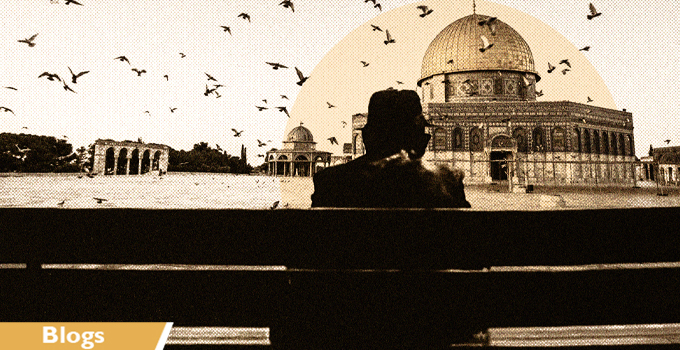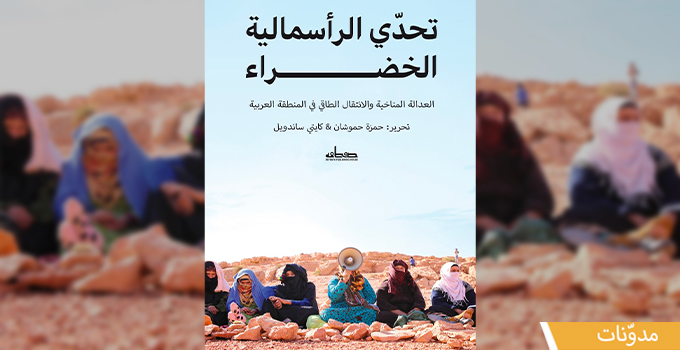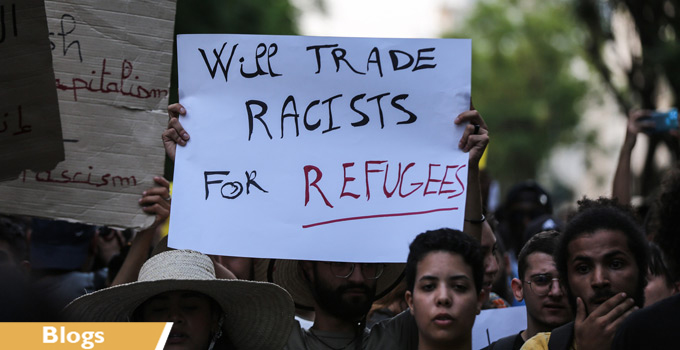
Naccache was an emblematic figure of the Perspectives Movement and, in many ways, the Tunisian Left, and indeed of the resistance movement as a whole. A communist and a political prisoner from 1968 to 1979, he wrote the iconic book Cristalwhile in prison in 1974 on the paper packages of a brand of cigarette of the same name, with a pencil he sharpened with the lid of a sardine can. He also wrote fiction, commentary, poetry, fables, and science fiction. Naccache makes possible, through his itinerary and writings, a long view of what it means to be a militant, a survivor of repression and torture, and a writer under authoritarian rule. In fact, his generation of prisoners of conscience set standards for resistance and introduced new traditions in militant conduct inside prisons, including cultural activities and means of struggle such as hunger strikes. In his writings, he prefigures transition by reflecting on issues of memory, reconciliation and forgiveness.
Among his other writings: Qu’as-tu fais de ta jeunesse? Itinéraire d’un opposant au régime de Bourguiba (1954-1979), suivi de: récits de prison. (Tunis et Paris: Mots Passants, 2009), which contains a detailed description of life in prison, including reflections on writing, torture, sports, and group dynamic; Le ciel est par-dessus le toit: nouvelles, contes et poèmes de prison et d’ailleurs (Paris: Editions du cerf, 2005) which gathers his creative prison writings with the exception of Cristal, which was published earlier, and Prison et liberté: parcours d’un opposant de gauche dans la Tunisie indépendante (Mots passants, 2014). He also wrote about the revolution since his return to Tunisia in 2011, notably in Vers La démocratie (2011) and Comprendre m’a toujours paru essentiel, Entretiens avec Mohamed Chagraoui (2015). In 2019, his Cristal was translated into Arabic.
Naccache’s thought must be understood within the main criticism his group mounted against the independent Tunisian state. They claimed their right to full citizenship and considered the project of the stateto be unfinished. Their role was to press for completing independence and establishing a socialist and democratic rule. A group of students, including Naccache, founded the Perspectives Movement (harakat afaq), known by the title of its journal (Perspectives tunisiennes pour une vie meilleure), which ran from August 1963 to October 1971 and published 63 issues. The movement started as a youth study and thinking enterprise in the early 1960s, known as Groupe d’Etudes et d’Action Socialistes Tunisien (the Tunisian Group for Socialist Studies and Action) (GEAST), and continued in one way or another through the 1970s. Historian Abdeljalil Temimi explains in the book dedicated to the group: “The group Perspectives was the voice of the Tunisian elite who laid out a comprehensive plan to insert the country into real modernization; but it was unable to communicate its political and intellectual message because of the logic of exclusion and the repression perpetrated against its figureheads and leaders”. This, he argues, deprived the country as a whole of their talent and the opportunity to found a visionary politics based on pluralism.

In self-representation as well as in public perception, Perspectivists come across as intellectuals, militants and humanists all at once. They defined what it meant to be a political prisoner and came to be associated with the infamous prisons, Nadhour and Borj Erroumi, and the lore around them in songs, poetry and collective consciousness. The group members also became symbols of resistance and courage, particularly for the political Left and the student movement in the 1970s and 80s. They included now famous names: Gilbert Naccache; Nouri Bouzid; Hamma Hammami; Mohamed Ben Jannet; Noureddine Ben Khedhr; Fathi Belhaj Yahia; Mohamed Charfi; Ahmed Ben Othman; Mohamed Salah Flis; Hechmi Ben Fredj, and dozens of others.They also included famous women: Zayneb Cherni; Amel Ben Abba, and others. From the group would emerge the most influential leftist movements: al-Amel al-Tounsi; al-Shu’la; Parti des ouvriers communiste tunisien (POCT), and Mouvement des patriotes democrates (Watad)… In one way or another, and with the exception of the communist party, the group gave birth to the Tunisian Left as we know it.
I did not go to prison because I was a writer: I became a writer because I went to prison
(Naccache)
His writing combines testimony, analysism and commentary about the experienceand thinking about writing and its function. Naccache establishes a relationship of similarity in function between memory and imagination. Both serve as ways of going beyond the walls of the prison. He explains: “I had didactic aspirations in writing: this book was in the end a way of doing politics, to present my thinking to others in a different form this time, and at a more individual level.” The genesis of the book, and of writing as vocation, are direct products of prison experience. Themes of therapy, forgiveness, and testimony guide it.
There is a particular kind of forgiveness in Naccache’s reflective meditations, a liberating one, regardless of the processes of transitional justice, or indeed of public justice(he refused adamantly to ask for a pardon from “the father of the nation”, President Bourguiba, and rejected compensation in the context of post revolution transitional justice arrangements). The novel written in prison was conceived as a “work of reflection, understanding, sympathy towards others despite everything, of reconstitution of the self” (Qu’as-tu fais de ta jeunesse ?, 275). Once the reconstitution is done: “one is no longer the same, one is almost ready to leave [prison], reunite with the others, without hate, without grudges and even without blame. One also becomes ready to write differently” (Qu’as-tu fais de ta jeunesse ?, 275).

Yet, what Naccache wrote was surprising, and does not rhyme with what was expected of people in similar conditions. He wrote a novel set in a middle class and settled Tunis. He recognises the novelty of the undertaking, as prisoners usually write analyses or opinion pieces, memoirs, and letters. To be sure, he and his colleagues did write political pamphlets when they were allowed pen and paper. They also read voraciously and debated their readings, which consisted of political and theoretical work but also literature (272).
Naccache speaks of a moment in writing as a form of therapy (274). In this, Naccache remains unique. Not only does he take in the prison experience and cope with it through writing, he also imagines the post-prison world and copes with it as well through the same medium. In fact, the world he initially imagined as a way of evasion from incarceration and compensation for loss of freedom ends up being prefigured.
Despite it all, the work fills its original function: “A work of reflection, of understanding, of sympathy for others despite it all, of reconstitution of the self” (275). The reconstitution of a self which had been assaulted, wronged, attacked and in danger of being broken. “All the time I spend writing was, for me, an intense jubilation/elation” (15). This is the meaning of “I did not go to prison because I was a writer: I became a writer because I went to prison.” It is as if there are two selves: “This graphomaniac self, which is so close and so different from the ordinary self” (280).

He evokes the dangers of waiting; chief among these was the “weakening” of memory and the loss of witness (careful about getting it right—the truthfulness of the recollection-he mentions how he thought of consulting his former prison-mates, and the scarcity of written accounts). By writing, he confesses, he was hoping to inspire others to do the same, not only to speak but also to respond to mischaracterisation of the period and the struggle (205). “By writing, I don’t have the ambition to change the world. Yet, to testify has become for me a vital need (exigence vitale). Writing is the means to it, or in any case the one means I know” (Cristal, 340).
Tunisian all the way, or I shall never be
(poet, M.S. Awlad Ahmed)
Naccache gives sufficient space to discussing the stakes and dynamics of being what he calls a “revolutionary Jew,” taking as parallel Noureddine Ben Khedhr in terms of relationship to roots and choices in life. The horizon of being for Naccache could fairly be characterised as political action and Tunisian-ness (132). Along the way of explaining this, he gives the reader a good view of the Jewish community in its Tunisian context, analysing social, economic, cultural, and particularly language issues. His father was killed in World War II while he was only four years old, and he grew up in a family of women. They were touensa not grana, poor Jews rather than Livorno migrants and businessmen. But French was his language of schooling, and eventually of home, while he learned Tunisian Arabic talking to friends. Arabic was not taught in these schools, not even as a foreign language. When his family decided to migrate to France, as many Jews have done, he opted not to follow suit. And in fact he returned to Tunisia in 1962 after his university studies in agriculture, an unusual but poignant choice of field selected specifically to serve his country, he tells us. He opposed nationalism, of the Jewish kind, which found expression in Zionism, and of the Arab kind, expressed along affinity with Islam. Both, he argues, are not egalitarian and are based on discrimination along ethnic or religious lines. The Jewish community looked for protection as community, whether through the French or through Zionism, while he sought integration in the Tunisian community at large instead of being closed in the condition of being Jewish. Communism was his path to that aim.
Political action within the framework of independent Tunisia provided him with a view of the future: “I was a Tunisian communist. My struggle was therefore that of the other Tunisians, people who recognise Tunisia as life space. I thought I had to fight to be recognized as a full citizen: I did not want to settle somewhere else, even in France, while my friends, my heart, my sensibility, even my skin, linked me to this country which I did not want to abandon” (Cristal, 160). In this path, he found friends of Arab origin. “No regret weighed on me for not having ties with the Jewish community, for not being rooted in the social body, if you like: I felt, I feel deeply of this country, of its earth, its sun, its sea, its humour, its surface fatalism, its music, its smells… And I lived a sort of prefiguration of the society of the future, which was worth more than all roots…” (Cristal, 160). Naccache notes the importance of the fact that his community – family – did not punish him (culpabiliser) for rejecting his origins (Cristal, 182).
After 6 years in prison, and changes of his relationship to the political group, and even to communism, he still decided to remain in Tunisia, and had this to say: “I stayed because, among other things, whatever I have to say, whatever the testimony I feel I was meant to make, I remain convinced that it is here where I should speak.” He would eventually go into exile in France, but returned to Tunisia in 2011 where he was active in public debate and action in the freed country. The Tunisia he identified with is struggling to remaininclusive, diverse, and forward-looking as it celebrates 10 years of its revolution amidst setbacks, impending dangers and the disarray of the country’s Left. Gilbert’s wish to be buried in Tunisia was welcomed at the popular and official levels. This time around, he is set to receive the honours and esteem he deserves.





iThere are no comments
Add yours